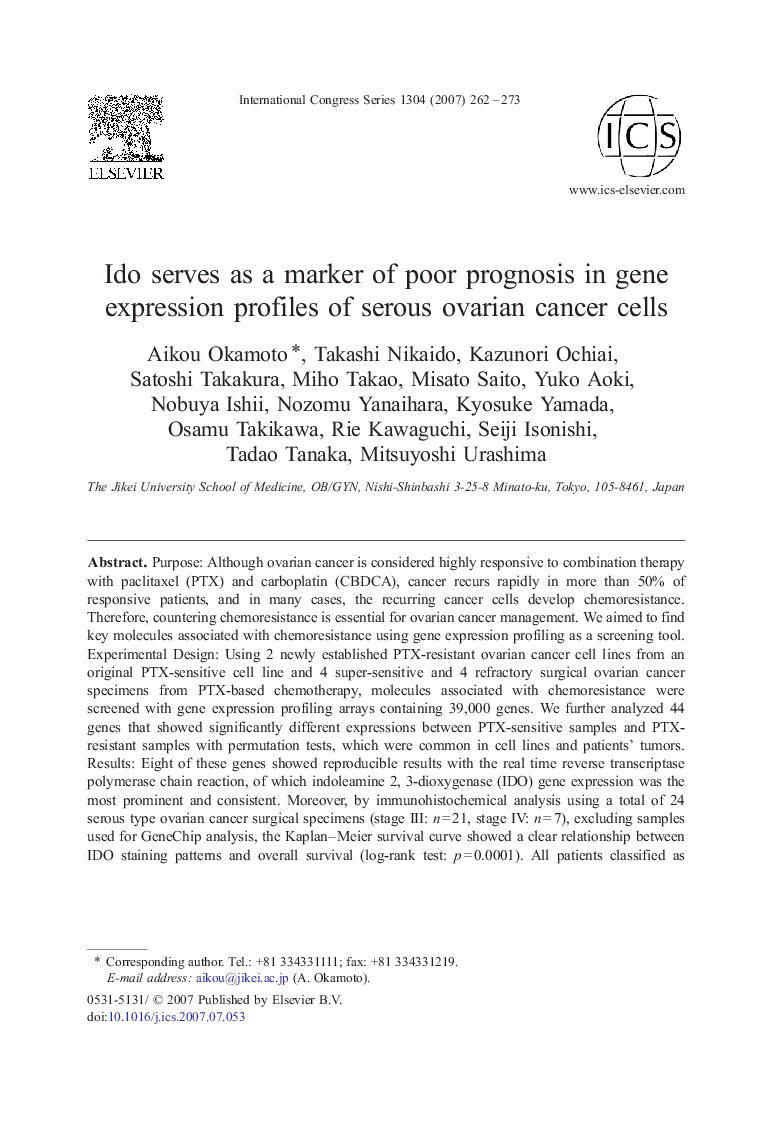| کد مقاله | کد نشریه | سال انتشار | مقاله انگلیسی | نسخه تمام متن |
|---|---|---|---|---|
| 2576400 | 1561353 | 2007 | 12 صفحه PDF | دانلود رایگان |

Purpose: Although ovarian cancer is considered highly responsive to combination therapy with paclitaxel (PTX) and carboplatin (CBDCA), cancer recurs rapidly in more than 50% of responsive patients, and in many cases, the recurring cancer cells develop chemoresistance. Therefore, countering chemoresistance is essential for ovarian cancer management. We aimed to find key molecules associated with chemoresistance using gene expression profiling as a screening tool. Experimental Design: Using 2 newly established PTX-resistant ovarian cancer cell lines from an original PTX-sensitive cell line and 4 super-sensitive and 4 refractory surgical ovarian cancer specimens from PTX-based chemotherapy, molecules associated with chemoresistance were screened with gene expression profiling arrays containing 39,000 genes. We further analyzed 44 genes that showed significantly different expressions between PTX-sensitive samples and PTX-resistant samples with permutation tests, which were common in cell lines and patients' tumors. Results: Eight of these genes showed reproducible results with the real time reverse transcriptase polymerase chain reaction, of which indoleamine 2, 3-dioxygenase (IDO) gene expression was the most prominent and consistent. Moreover, by immunohistochemical analysis using a total of 24 serous type ovarian cancer surgical specimens (stage III: n = 21, stage IV: n = 7), excluding samples used for GeneChip analysis, the Kaplan–Meier survival curve showed a clear relationship between IDO staining patterns and overall survival (log-rank test: p = 0.0001). All patients classified as negative survived without relapse. The 50% survival of patients classified as sporadic, focal and diffuse was 41, 17 and 11 months, respectively. Conclusion: The IDO screened with the GeneChip was positively associated with PTX resistance and with impaired survival in patients with serous type ovarian cancer.
Journal: International Congress Series - Volume 1304, 1 November 2007, Pages 262–273